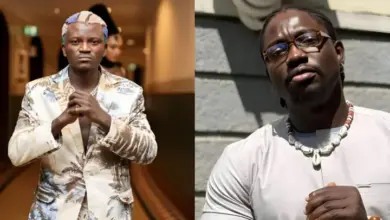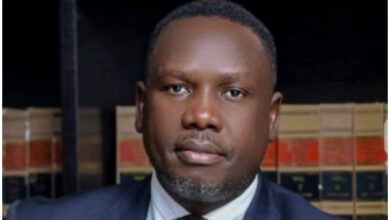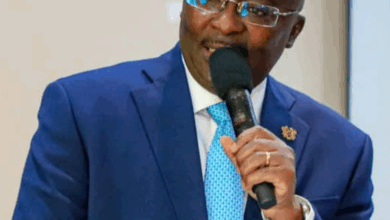US campus activists relieved – and anxious – after Gaza ceasefire deal
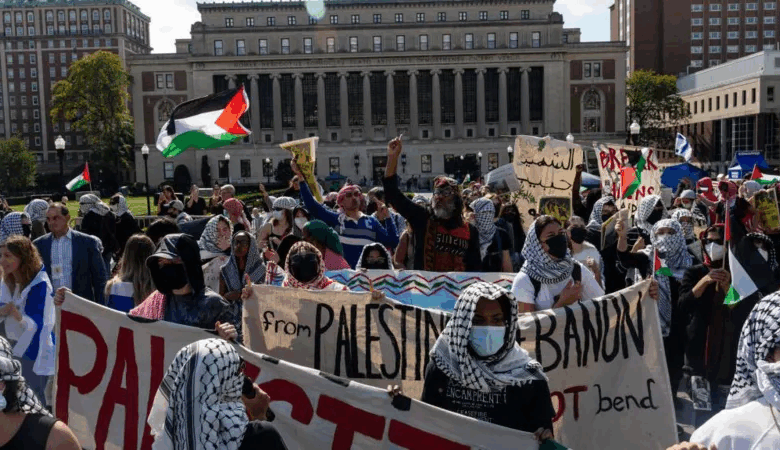
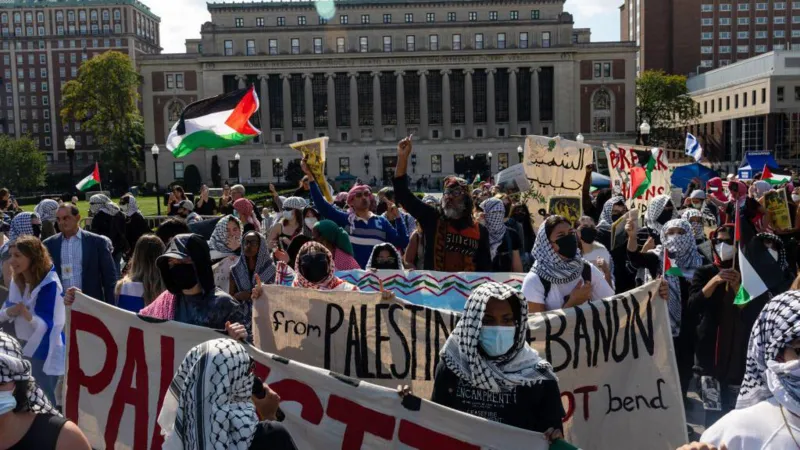
For months last year, protests swept across major college campuses in the US as tens of thousands of students called for an end to the Israel-Gaza war.
The protests hit their peak in the spring, when pro-Palestinian activists staged sit-ins and launched encampments. Many of the demonstrations were peaceful, but others saw violent clashes with armouredpolice as students occupied buildings. More than 3,000 people were ultimately arrested.
The most common chantat these protests was “ceasefire now!”. More than a year later, a ceasefire deal was inked,prompting US President Donald Trump to declare on Monday that “the war is over”.
For many college students who had called for this moment since the war began on 7 October 2023, the news of a peace agreement triggered mixed emotions.
“My initial reaction was relief, knowing that my extended family, or all the people of Gaza, would be able to breathe,” said Khalid, a student activist at Earlham College in Richmond, Indiana, who, like others, asked the BBC not to use his last name.
Dozens of his family members in Gaza were killed in the war, he said.
“On the other hand, there is a certain level of apprehension and feeling a bit hesitant to be fully optimistic for what comes next,” he said.
When Georgetown University student Ahmad first heard the news of the peace agreement, he said “a sense of joy rushed over me”.
But he quickly added: “You always have that uneasy feeling.”
“Maybe this is the end. All I can do is hope,” Mr Ahmad, who is of Palestinian descent, said.
Thomas, a graduate student at Columbia University in New York, where protestserupted last year before spreading nationwide, also expressed some scepticism.
“Even if there is a ceasefire right now, there’s still so much work to be done,” he told the BBC.
He added that, even though the biggest Columbia protests had long died down, the war in Gaza remained a difficult subject on campus.
“People are now afraid to speak out,” he said. “They think if they speak out about what they believe in, no matter what side they’re on, that it’s going to create more conflict in the social atmosphere.”
Elisha Baker is also a student at Columbia University. A self-described Zionist, he told the BBC he “protested against the anti-Israel movement” on campus last year. He welcomed the return of hostages held in Gaza following the peace agreement.
“The fact that we got 20 living hostages home, after two years in tunnels in captivity – that is cause for nothing but celebration,” he said.
“It also pains me to think about the murderers and terrorists that are being released,” he added, referring to the Palestinian prisoners and detainees freed by Israel under the terms of the peace agreement.
The release involved about 250 prisoners who had been convicted of crimes including murder and deadly attacks against Israelis – and about 1,700 detainees from Gaza who had been held by Israel without charge.
Long before the recent ceasefire announcement, pro-Palestinian protest activity, which at one point engulfedan estimated 500 US universities, had mostly cooled.
Universities had come under pressure from the president, and Republican lawmakers, to crack down on pro-Palestinian protests. They argued universities were failing to fight antisemitism on campus.
Three university presidents – from Harvard, Columbia and the University of Pennsylvania – resigned in the wake of heated congressional hearings about the protests.
The Trump administration froze billions of dollars in funds from universities deemed non-compliant, and plainclothes agents detained pro-Palestinian student activists such as Mahmoud Khalil and Rümeysa Öztürk.
While the momentum and energy behind the protests may have waned, some students said their efforts had been worthwhile. Mr Ahmad, the student activist at Georgetown University, welcomed the announcement of a peace deal.
“Looking online, getting to see the smiles of people knowing that the crisis is over and that the war has been stopped – it’s joyous,” he said.
“The past few years, all you saw was carpet bombings, buildings destroyed and families lost.”
But Mr Ahmad added that “the threat of violence is never away”.
“There’s always this uncertain feeling that (the war) is going to reignite again,” he told the BBC.
At least seven people in Gaza were killed on Tuesday by Israeli drone strikes for crossing a boundary established by the ceasefire plan.
“I’m hesitant to fully accept that this is the end of the mass killing and the violence,” said Mr Khalid from Earlham University.
Mr Baker, the pro-Israel student from Columbia University, also shared concerns about the fragility of Trump’s 20-point peace plan.
“All of the innocents that were killed by Hamas whose bodies are still being held in captivity deserve to be laid to rest in a dignified way with their families paying their final respects,” he said.
“The fact that Hamas hasn’t done it is a violation of the agreement,” he said.
Some bodies of deceased hostages were returned to Israel this week, but about 20 are believed to still be in Gaza.
Mr Baker, who is co-chair of Columbia’s pro-Israel public affairs committee Aryeh, said the advocacy for Israel must continue even after the ceasefire.
“The Jewish student movement, the Jewish people, we’re going to continue to stand up for the Israel that we love, and for our right as a people,” he said.
Mr Khalid, too, said that activism for Palestinians in Gaza must not waver.
“Now that there’s a ceasefire, we’re able to breathe a little bit and, of course, celebrate the immediate victory that is a ceasefire,” he said.
“But it doesn’t change the fact that we’re going to continue working towards the rest of our goals.”
Jadd Hashem, a student of Palestinian descent at the University of Texas, said: “People can be perhaps pessimistic… but I think if anything, this is the most amount of optimism that any of us have felt in over two years.”
He believes this will be the start of a lasting peace.
Mr Hashem is a member of the University of Texas chapter of Atidna International, an organisation focused on promoting Israeli-Palestinian dialogue.
He believes that cross-cultural communication is going to be key.
“Now is the opportunity we have to talk to one another, to have conversations, and ultimately, to push for dialog between Israelis and Palestinians, between Jews and Arabs,” he said.
“We have to get to know one another and humanise one another to ensure that something like this conflict that we saw the last two years cannot happen again.”
DISCLAIMER: The Views, Comments, Opinions, Contributions and Statements made by Readers and Contributors on this platform do not necessarily represent the views or policy of Multimedia Group Limited.
DISCLAIMER: The Views, Comments, Opinions, Contributions and Statements made by Readers and Contributors on this platform do not necessarily represent the views or policy of Multimedia Group Limited.
Source link

